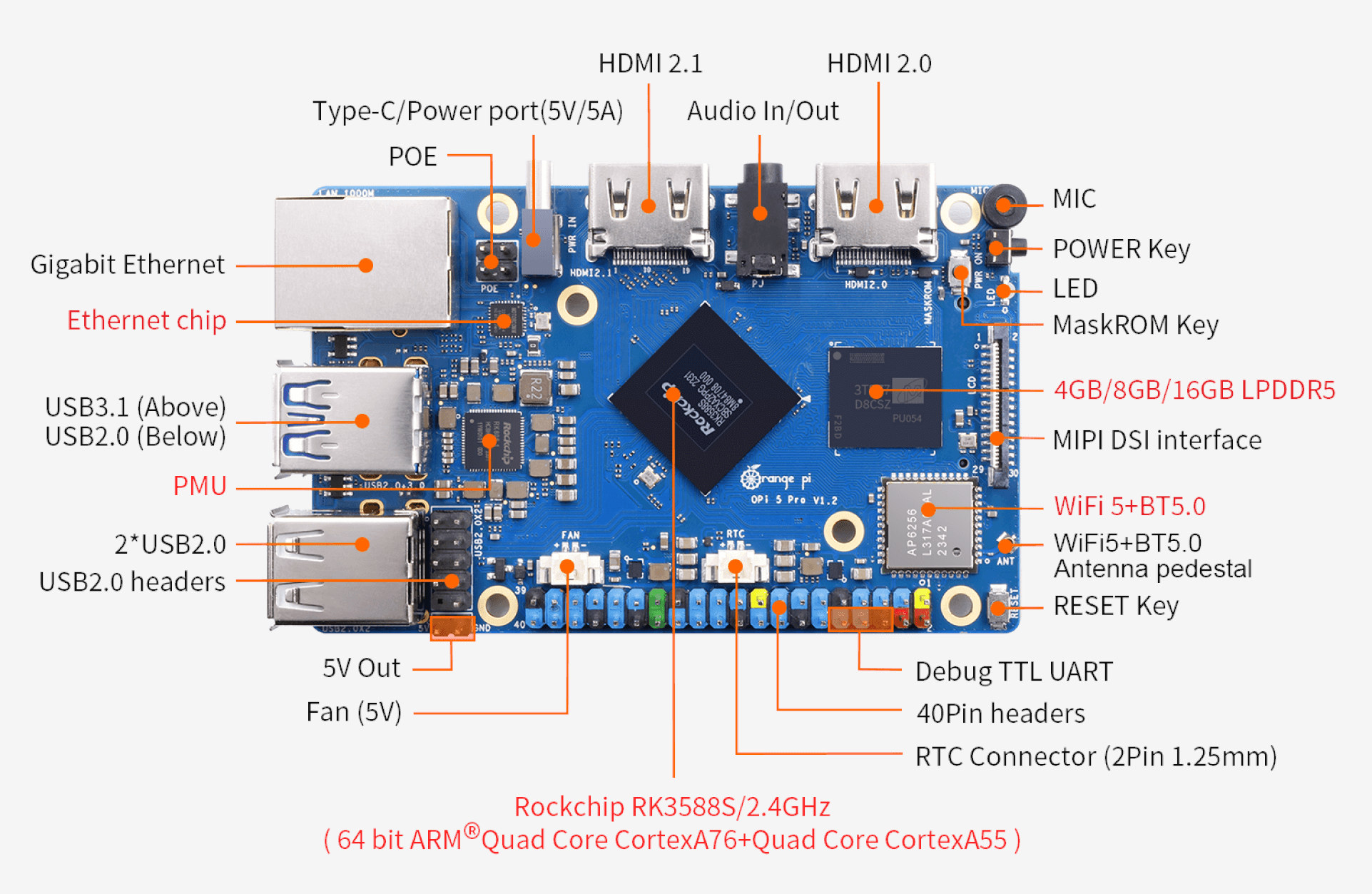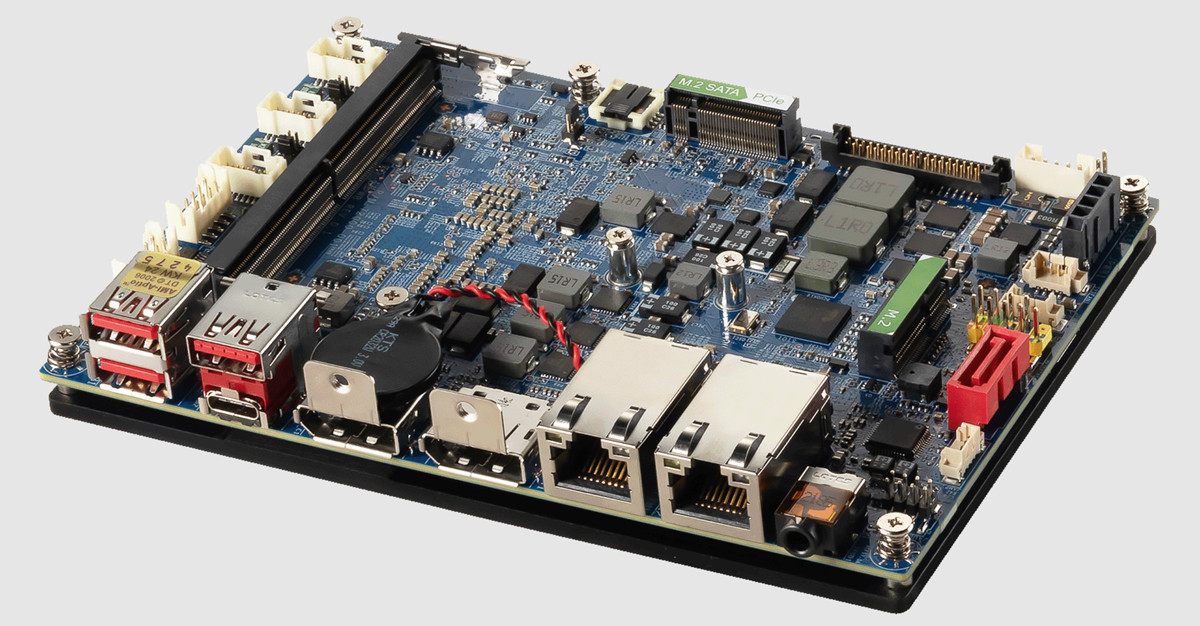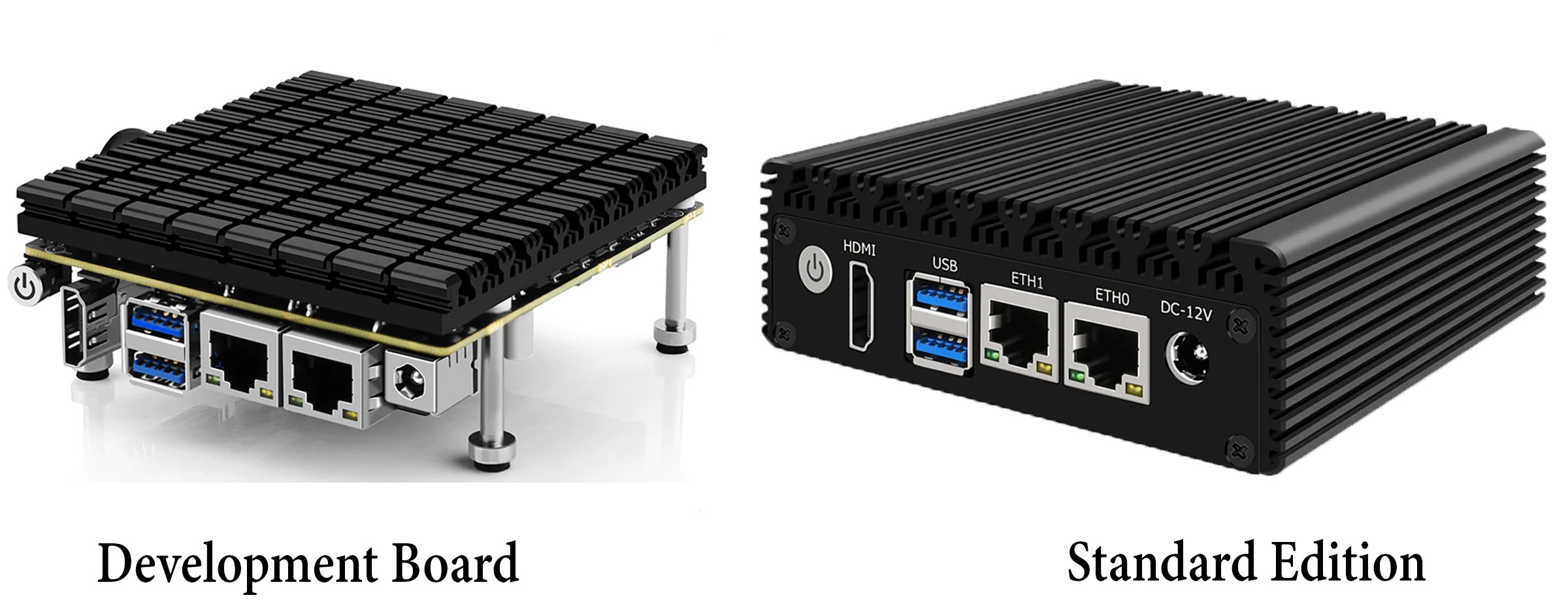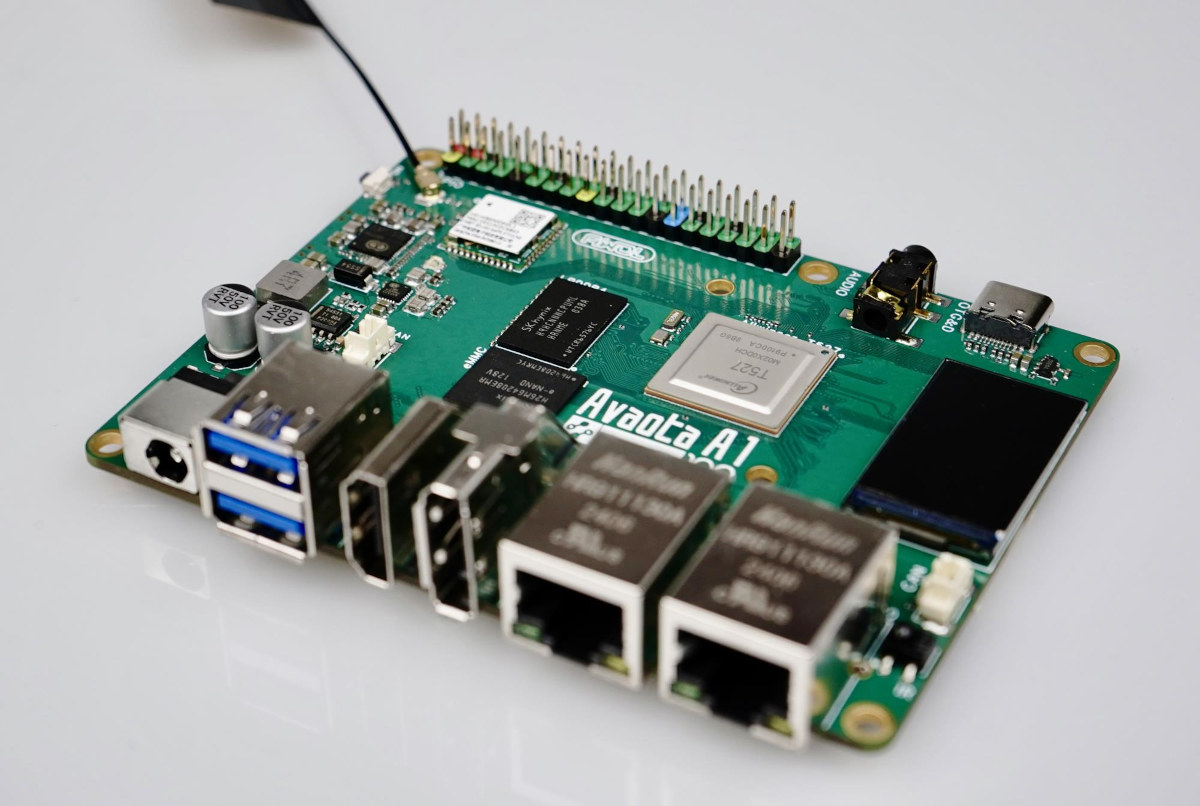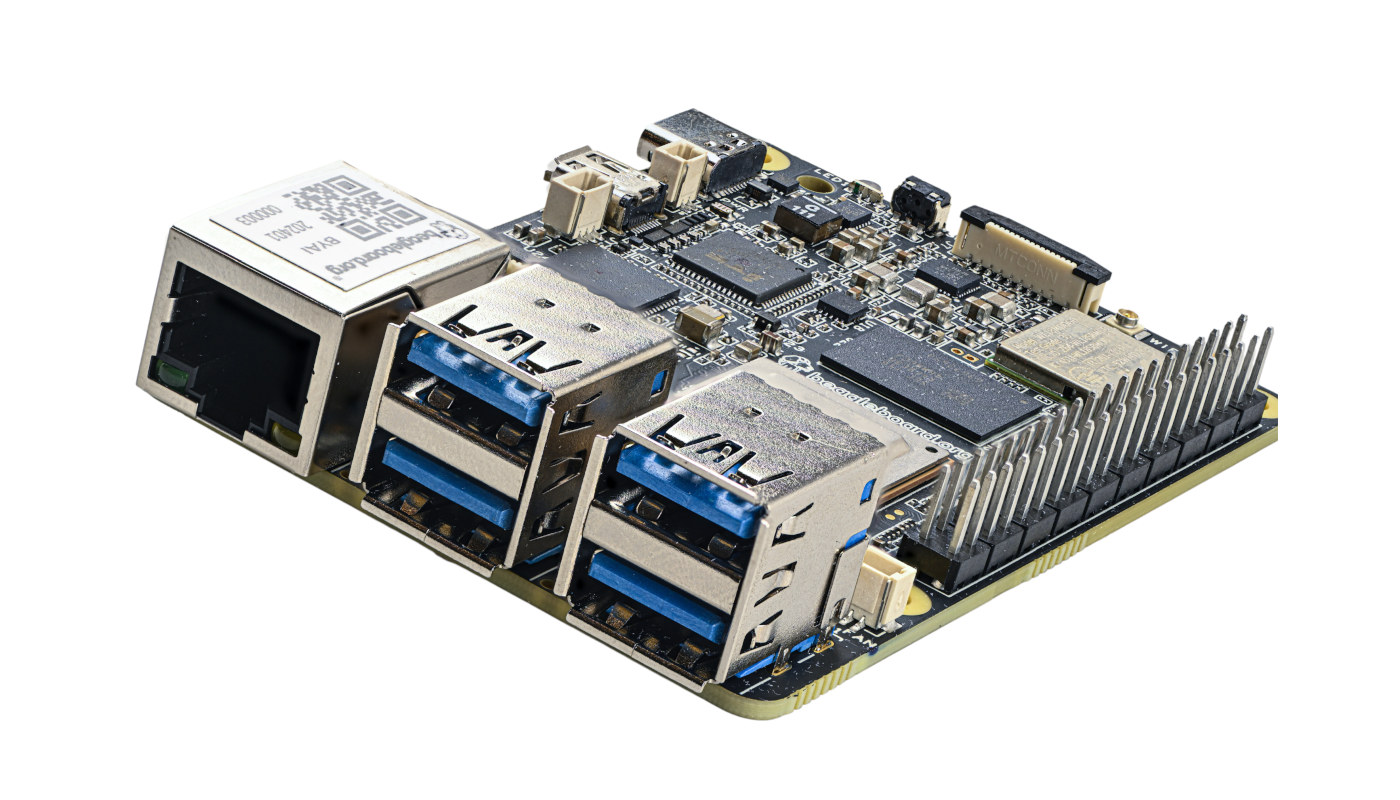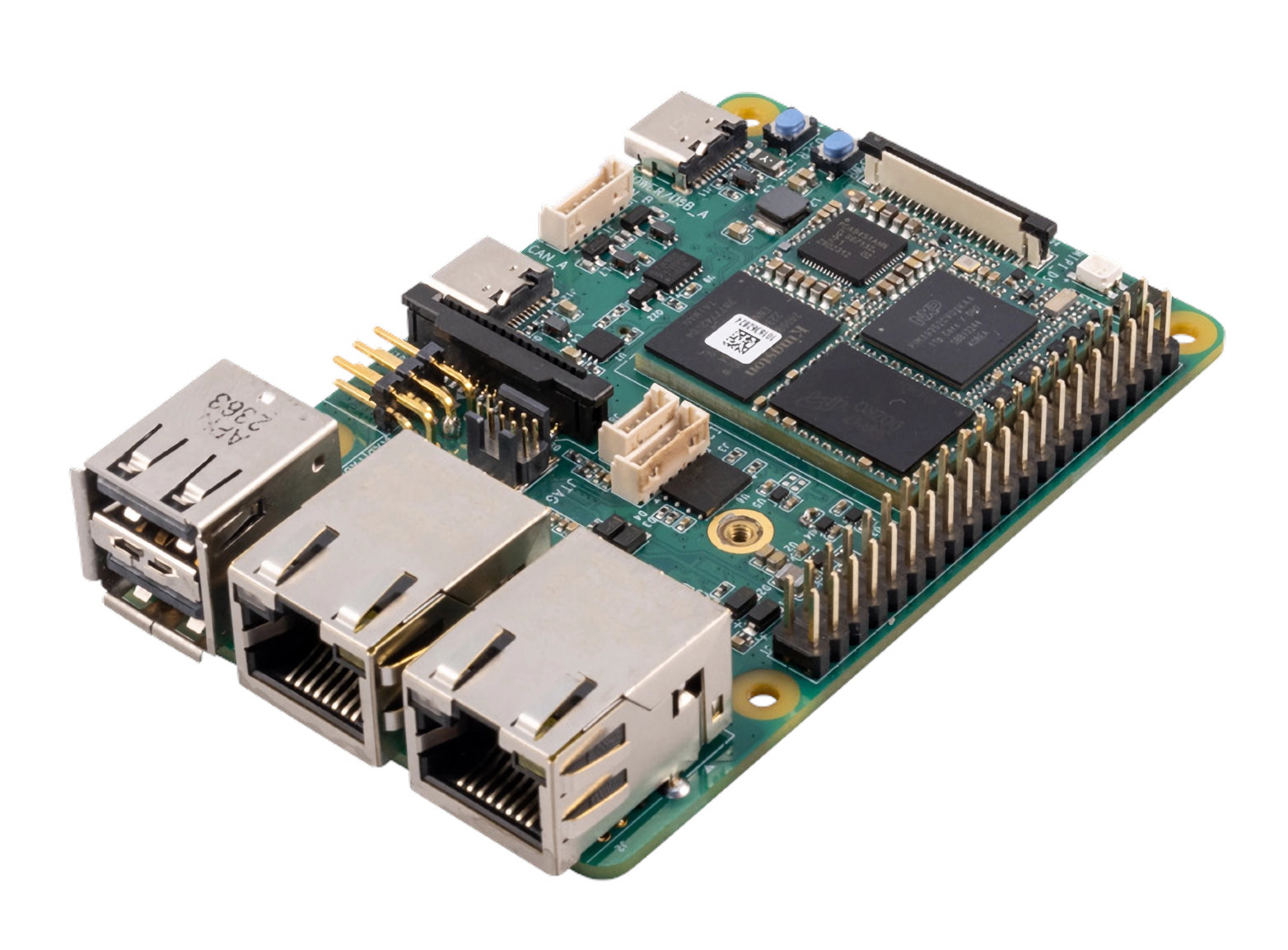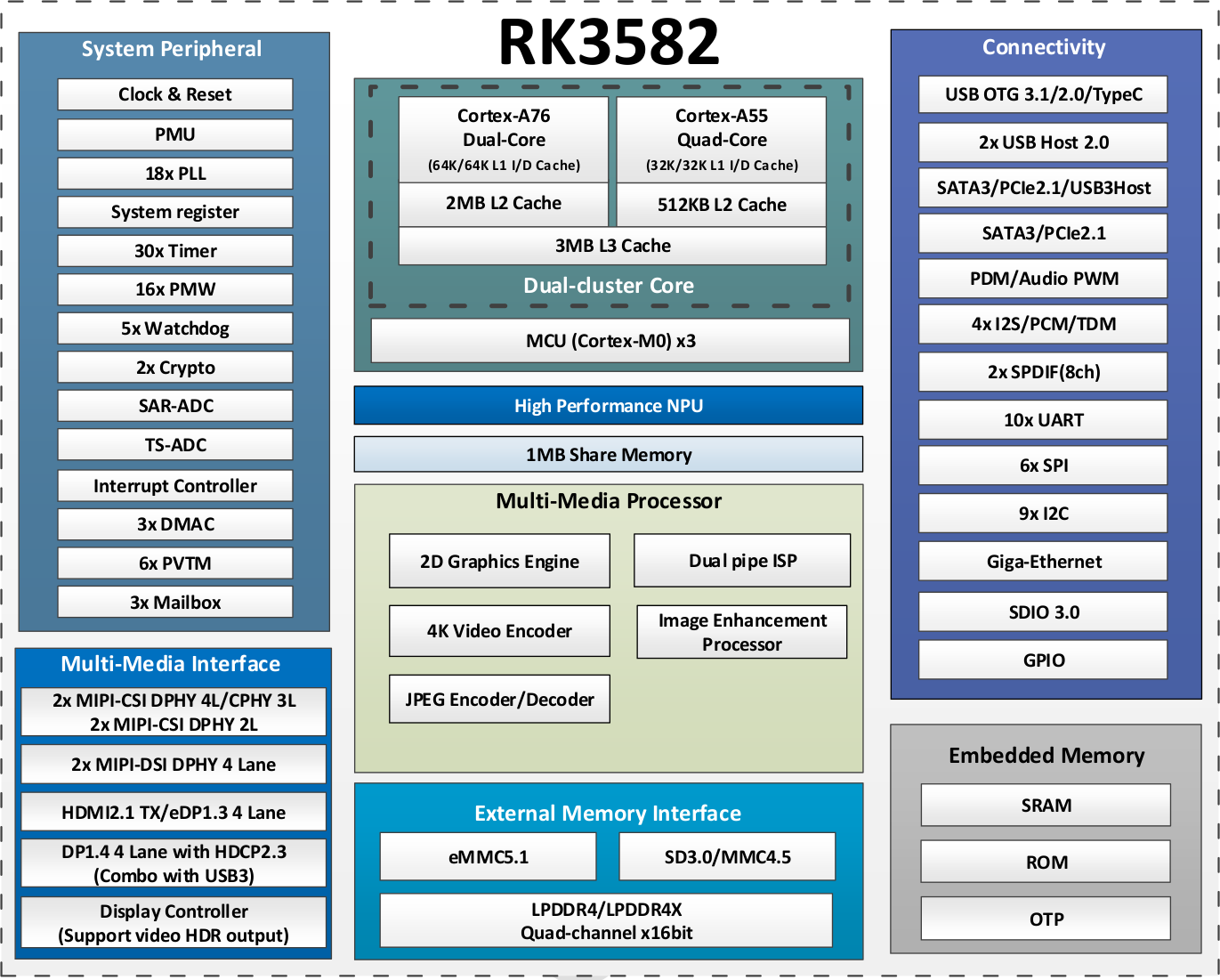As mentioned in the Orange Pi Developer Conference 2024 article, the Orange Pi 5 Pro launch was just around the corner, and the latest Rockchip RK3588S SBC is now available on Amazon or Aliexpressfor $109 and up with 16GB LPDDR5 RAM, but cheaper 4GB ($60) and 8GB ($80) variants are coming soon. One would think the Orange Pi 5 Pro would be an evolution of the Orange Pi 5 SBC with LPDDR4 memory, and in some ways it is, but there are enough changes to display ports, storage, wireless, GPIO header, and even the form factor that make a direct comparison challenging. Orange Pi 5 Pro specifications: SoC – Rockchip RK3588S CPU – Octa-core processor with 4x Cortex-A76 cores @ up to 2.4 GHz, 4x Cortex-A55 cores @ up to 1.8 GHz GPU – Arm Mali-G610 MP4 GPU with OpenGL ES 3.2, OpenCL 2.2, and Vulkan 1.2 support VPU – […]
BCM ECM-ADLN-N97 – A 3.5-inch Intel N97 SBC with DDR5 RAM and dual 2.5Gbps Ethernet
BCM Advanced Research recently introduced the ECM-ADLN-N97, a 3.5-inch SBC built around the Intel Processor N97 Alder Lake-N SoC. This N97 quad-core CPU can be clocked up to 3.6 GHz and features six MB of cache, Intel UHD Graphics, and 24 Execution Units while maintaining a low power consumption with a TDP of just 12 Watts. Additionally, there is the option to utilize Intel Atom or Pentium processors, which have a TDP of 15 Watts. The BCM ECM-ADLN-N97 SBC also has support for DDR5 memory, M.2 E-Key and B-Key slots, 32GB of onboard eMMC, dual 2.5GbE, and multi-display functionality all while maintaining a slim fanless form factor. In one of our previous posts, we wrote about the Cincoze DA-1200 and we also reviewed the Blackview MP80 mini PC both are based on the Intel Processor N97. BCM’s ECM-ADLN-N97 SBC Specification SoC Intel Alder Lake-N Platform; Intel Processor N97, 6M Cache, […]
$101+ CWWK X86-P1 fanless SBC and mini PC is powered by Intel N3050, N3160, or N3700 Braswell SoC
In a previous post, we wrote about the CWWK X86-P5, a $219 fanless mini PC powered by the Alder Lake N-series N100 SoC. However, during a recent search on AliExpress, I stumbled upon the CWWK X86-P1 fanless mini PC and SBC. This compact device offers three variants (N3050, N3160, and N3700) with a TDP of only 6W. It features dual GbE Ethernet, dual USB 3.0, HDMI, and a GPIO header. Additionally, it includes a built-in fan header for improved cooling. It supports Windows 11, Ubuntu 22.04, and networking OS options like pfSense or OpenWrt along with all major x86-based operating systems. CWWK X86-P1 Fanless Mini PC Specification SoC options Intel Celeron N3050 – Dual core Braswell processor @ up to 2.16 GHz with Intel HD Graphics Gen8 – 6W TDP Intel Celeron N3160 – Quad-core Braswell processor @ up to 2.24 GHz with 12EU Intel HD graphics 400 – 4W […]
Avaota A1 open-source hardware SBC is powered by Allwinner T527 octa-core Cortex-A55 SoC
We’ve recently covered MYiR Tech MYD-LT527 industrial development board based on Allwinner T527 octa-core Cortex-A55 AI SoC and noted Orange Pi is working on one that should even get mainline Linux support. The Avaoto A1 offers another Allwinner T527 hardware option with an SBC design that’s fully open-source. The board is equipped with up to 4GB RAM, 128GB eMMC flash, HDMI and DisplayPort video outputs, two gigabit Ethernet ports, a WiFi 6 and Bluetooth 5.4 module, a few USB ports, a 3.5mm audio jack and the usual 40-pin GPIO header for expansion. Avaota A1 specifications: SoC – Allwinner T527 (or Allwinner A527 with Avaota A1C board, not sure what the differences are between the two) CPU Octa-core Arm Cortex-A55 processor with four cores @ 1.80 GHz and four cores @ 1.42GHz XuanTie E906 RISC-V core up to 200 MHz GPU – Arm Mali-G57 MC1 GPU with support for OpenGL ES […]
Orange Pi Developer Conference 2024, upcoming Orange Pi SBCs and products
Orange Pi held a Developer Conference on March 24, 2024, in Shenzhen, China, and while I could not make it, the company provided photos of the event where people discussed upcoming boards and products, as well as software support for the Orange Pi SBCs. So I’ll go through some of the photos to check out what was discussed and what’s coming. While Orange Pi is mostly known for its development boards the company has also been working on consumer products including the Orange Health Watch D Pro and the OrangePi Neo handheld console. The Orange Pi Watch D Pro is said to implement non-invasive blood glucose monitoring, blood pressure monitoring, one-click “micro-physical examination” and other functions to to help users monitor their health monitoring. The Watch D Pro uses a technique that emits a green light to measure glucose levels in the blood, and we’re told it’s accurate enough to […]
BeagleY-AI SBC features TI AM67A vision processor with 4 TOPS AI accelerators
The BeagleBoard.org Foundation’s BeagleY-AI is an open-source hardware, credit card-sized SBC powered by a Texas Instruments AM67A quad-core Cortex-A53 vision processor with various programmable blocks capable of delivering up to 4 TOPS for AI algorithms. The board ships with 4GB RAM, relies on a microSD card slot for storage and OS booting, implements gigabit Ethernet, WiFi 6, and Bluetooth 5.4 connectivity, and can drive up to three displays via micro HDMI, OLDI (LVDS), and MIPI DSI interfaces. The BeagleY-AI also comes with two MIPI CSI camera interfaces, four USB 3.0 ports, a USB Type-C port, and a 40-pin GPIO header for expansion. We can also see a 16-pin PCIe FPC connector that looks somewhat similar to the 20-pin PCIe connector on the Raspberry Pi 5 but officially supports PCIe Gen3 x1. BeagleY-AI specifications: SoC – Texas Instruments AM67A (J722S) “vision processor” CPU Quad-core 64-bit Arm Cortex-A53 processor at 1.4GHz Arm […]
MaaXBoard OSM93 – Business card-sized SBC features NXP i.MX 93 AI SoC, supports Raspberry Pi HATs
MaaXBoard OSM93 is a single board computer (SBC) based on a Size-S OSM module powered by an NXP i.MX 93 Cortex-M55/M33 AI SoC and offered in a business card form factor with support for Raspberry Pi HAT boards through a 40-pin GPIO header and mounting holes. The board also comes with 2GB LDDR4, 16GB eMMC flash, MIPI CSI and DSI interfaces for optional camera and display modules, two gigabit Ethernet ports, optional support for WiFi 6, Bluetooth 5.3, and 802.15.4, three USB 2.0 ports, and two CAN FD interfaces with on-board transceivers. MaaXBoard OSM93 specifications: SoC – NXP i.MX93 CPU 2x Arm Cortex-A55 up to 1.7 GHz 2x Arm Cortex-M33 up to 250 MHz GPU – 2D GPU with blending/composition, resize, color space conversion NPU – 1x Arm Ethos-U65 NPU @ 1 GHz up to 0.5 TOPS Memory – 640 KB OCRAM w/ ECC Security – EdgeLock Secure Enclave System […]
Rockchip RK3582 is a cost-down version of RK3588S with two Cortex-A76 cores, four Cortex-A55 cores, no GPU
Rockchip RK3582 hexa-core SoC is pin-to-pin compatible with the popular Rockchip RK3588S octa-core Cortex-A76/A55 SoC, but only features two Cortex-A76 cores, a 5 TOPS NPU (instead of 6 TOPS) and does not come with a 3D GPU. I was first made aware of the Rockchip RK3582 in October 2023 when I was sent a photo of a board allegedly for a TV box, but while the RK3582 still features a 4K video decoder, the lack of a 3D GPU could make it problematic with 3D accelerated user interface. We now have more details with Radxa having released the datasheet and a few more interesting details. Rockchip RK3582 specifications: Hexa-core CPU – 2x Cortex-A76 and 4x Cortex-A55 cores in dynamIQ configuration (frequencies are still shown as TBD in the datasheet) GPU No 3D GPU 2D graphics engine up to 8192×8192 source, 4096×4096 destination AI Accelerator – 5 TOPS NPU 3.0 (Neural […]


